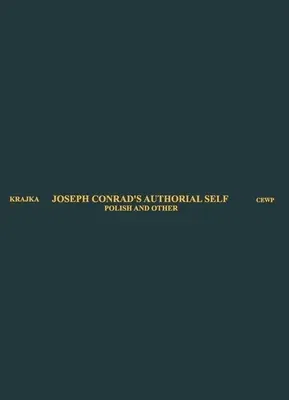Joseph Conrad's Authorial Self is organized around the category of the
author with some illuminating aspects of Conrad's Polishness as the
major area of consideration. It starts with a theoretical treatment of
Conrad's authorship, continues through a focus on autobiography along
with his creative process, proceeds with analyses of his ideas derived
from his Polish heritage as presented in his personality and oeuvre, and
moves on to biographies of the writer's relatives. This set is followed
by papers on "Amy Foster," a short story of strong Polish resonance and
a classic of émigré literature, considerations of translations of his
works into Polish, and essays on central/south-central Europe and the
sea.
The main integrative concept of authorial self is supported by two
secondary principles: delimitation by the geographical area covered:
mainly Poland, but also Russia and central and south-central Europe, and
the chronology of Joseph Conrad's life and works, from influences upon
Konradek in Lwów and the significance of East Carpathian poetics to
juxtapositions of his oeuvre with early twentieth century authors as
well as a contemporary Polish author and translations of his works. The
final five papers span the whole period studied in this volume, from the
first Polish translation published in 1897 to one of the most recent in
2011, from possible influences upon Conrad in his childhood and youth to
the most recent reception of his works in the Balkans.
This book is volume 27 of the series Conrad: Eastern and Western
Perspectives, edited by Wieslaw Krajka.

